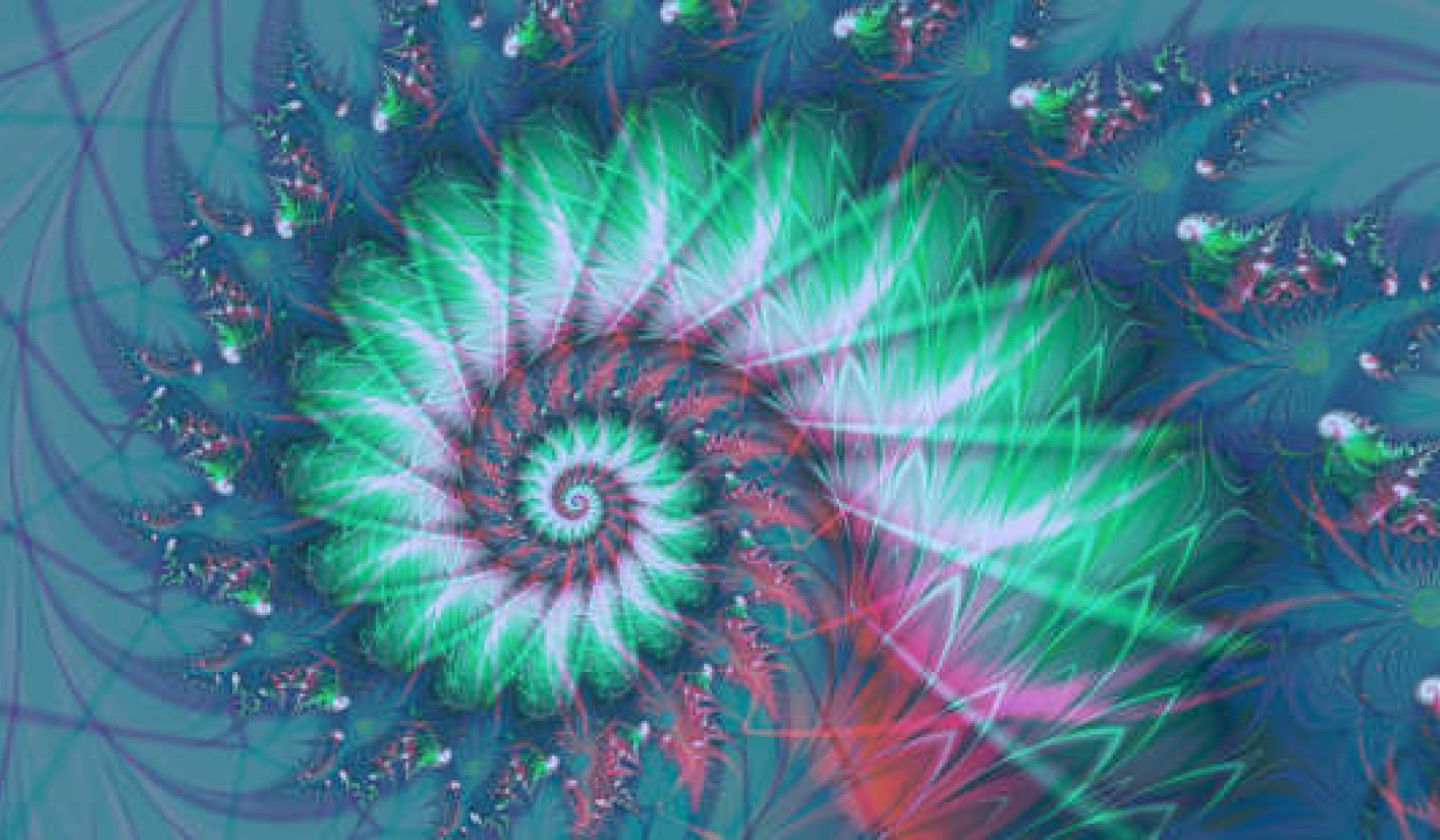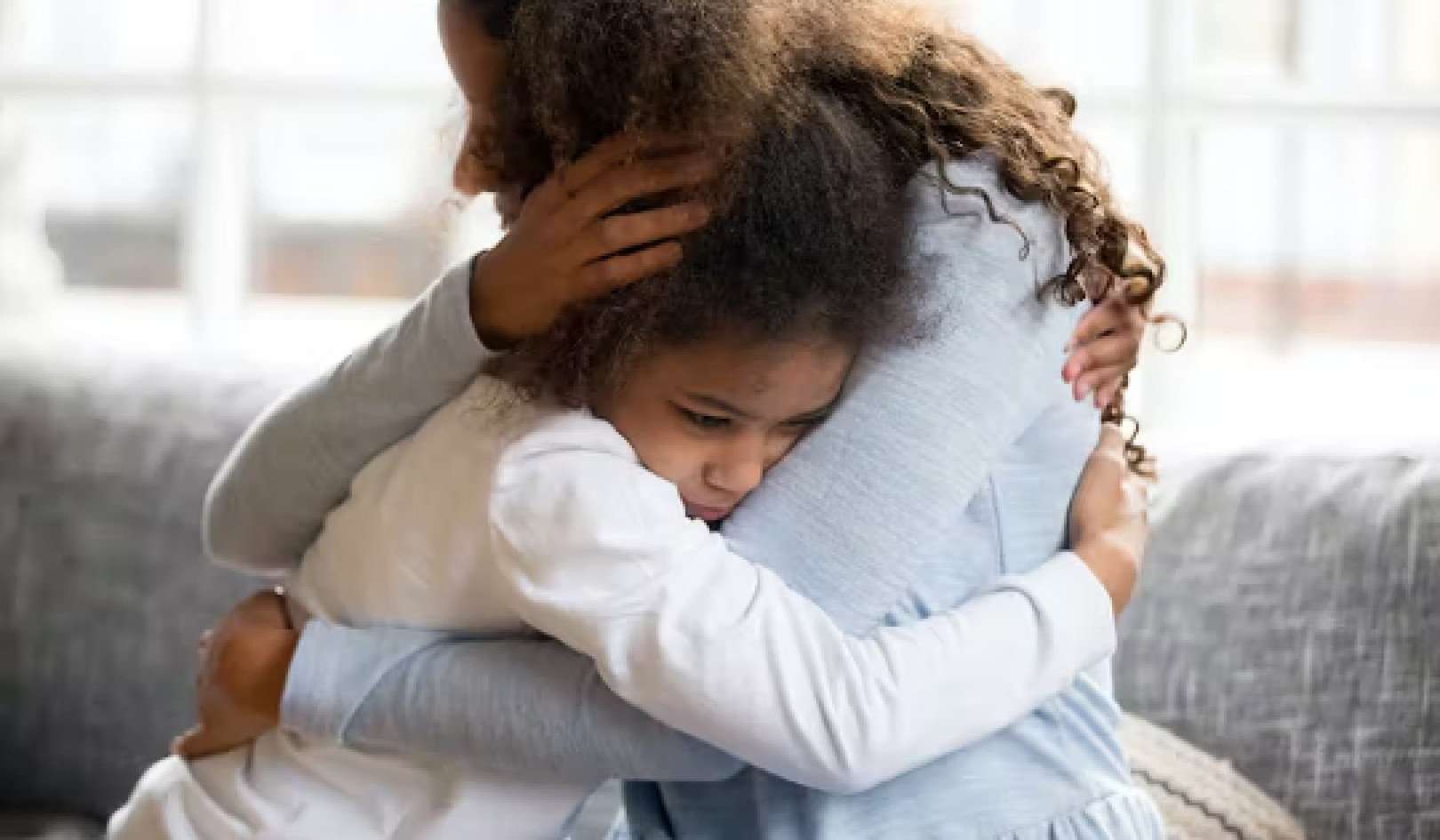
Humility and gratitude go hand in hand...
Awareness increases so that we become grateful
for everything we are given. We have to learn, literally learn,
to be grateful for what we receive day by day, simply to balance
the criticism that day by day we voice because of powerful emotions.
-- Swami Sivananda Radha, Kundalini Yoga for the West
There are certain critical turning points when grief and despair begin to transform into acceptance, contentment, and Love. In my own life, and in the stories people have shared with me over the years, I have seen three common ingredients that seem to signal the moment when the weight of depression and disappointment starts to lift:
1. When we begin to find a way to give to others again.
2. When we begin to find a way to connect with and love others again.
3. When we begin to find a way to feel gratitude again.
Our cultural tendency is to experience life from a standpoint of lack. We are the wealthiest country in the world, yet much of our lifestyle is fueled by a desperate sense that we don't have enough... we don't have enough money, we don't have enough possessions, we don't know enough, we haven't achieved enough, we aren't safe enough, we don't have enough time... we haven't received enough approval... we aren't getting enough love.
We seldom stop to reflect on the irrational, insatiable quality of that sense of not-enough-ness. It carries over dramatically into the situations when we find ourselves despairing over a disappointment, a loss, an unwanted change, or an unanswered prayer.
In the experience of grief, for instance, we generally find ourselves caught in despair and outrage that a loved one has been "taken" from us. In those moments, we find it difficult to be thankful that we had them for whatever period of time we did. We forget to be thankful that they were a part of our life and that they made extraordinary contributions to shaping our character and our life experience. We are lost in loss. In those moments we tend to forget all we had, and still have.
Finding Our Way Into Remembering and Gratefulness
Finding our way into that remembering and gratefulness can be a delicate dance. On December 13, 2006, as I was nearing the completion of this book, one of my closest and dearest friends died suddenly at the age of forty-five.
Richard Carlson, author of the fabulously successful Don't Sweat the Small Stuff book series, was on an airplane flying from San Francisco to New York City. We had been looking forward to an opportunity to spend some time together. We were planning to spend the following day visiting in New York City. The night he was scheduled to arrive, I was out to dinner with some friends. When I left the restaurant, I checked my cell phone for messages.
Rather than the usual cheerful message from Richard announcing that he had arrived safely in New York, there was an urgent message from his assistant, Susan. When I returned her call, she took a deep breath and said, "John, Richard died on the plane today."
I felt as if my heart had stopped.
After a moment, Susan asked if I would be able to drive over to the hospital near Kennedy Airport in Jamaica, Queens, where the ambulance had taken Richard's body after his flight landed. "John, would you be able to retrieve Richard's personal effects and to identify his body?"
The assignment was one I did not relish, but there was never a thought that I wouldn't do it. At some point in life, most of us will have the opportunity to experience a moment when reality changes so quickly and so dramatically that it feels as if the entire universe has screeched to a halt and abruptly reversed course. We are left confused, numb, and disoriented. Having to struggle to see and hear through the fog of shattered expectation and disbelief, to focus on questions, details, and information while our heart is broken and our mind is reeling, is nearly an impossible task.
The Greatest Teachings Often Come From The Things We Aren't Prepared For
I've been teaching people for years to be prepared for anything. Yet I was reminded, through Richard's beneficent grace, that the greatest teachings often come from the things we aren't prepared for. Richard was an apparently healthy, energetic forty-five-year-old man, nearly twelve years younger than me. We had been making plans to teach together, to write together, and to travel to Hawaii and India together.
After two trips out to Jamaica, Queens, on subsequent days, all of the logistics with the hospital, the medical examiner's office, and Richard's family back in California were taken care of. I returned to my home in New Jersey, walked through the front door, kicked off my sandals, and stretched out on my living room sofa. I stayed there for two full days, allowing myself to feel absolutely miserable. I let my sadness have free expression. I wallowed in it.
In those moments there is no way to understand, no way to make sense or order out of the chaos of ever-changing emotion and unfathomable reality. I realized, with great interest, that a part of me found a kind of reassuring vital energy in the sadness. It was such an intensely human, exquisitely excruciating experience. I would almost call it "delicious suffering." I kept reflecting on what it was that was so compelling and so strangely pleasant about the emotional pain.
An Internal Dance: the Interplay Between Pain & an Open Heart
I realized that I was experiencing a magnificent internal dance — the interplay of deep and abiding love intersecting with attachment, expectation, and a temporary inability to comprehend the events of my life. I was in terrible pain, but something beautiful was happening. My heart was being torn open. It was as if my love for Richard and my despair over his death were combining to perform a kind of spiritual open-heart surgery on me.
When I closed my eyes and quieted, I had an overwhelming sense of Richard's presence. I saw him in ethereal form, standing over me like a skilled surgeon hovering above a patient on an operating table. He was smiling and gently laughing. I could almost feel his skilled, compassionate hands burrowing deep into my chest, into my heart, into the core of my being, deftly removing layer upon layer of the "rational" thought forms and emotional armoring that so often enshroud our Love.
Richard was an extraordinary friend. What I found, as I lay on my sofa, was that all of the things I missed, and anticipated missing, about Richard were also pointing the way to the places in me that were so very grateful to have had such a friend. I just kept allowing the sadness to surface.
Each turbulent wave of sorrow would envelop my body and mind, heaving it this way and that, emotionally knocking the wind out of me. I felt breathless, as if a twenty-ton elephant were sitting on my chest. But I knew that if I just relaxed... if I just kept breathing... if I just kept allowing everything to be exactly as it was... all of the confusion, despair, disappointment, lack of understanding, and debilitating sadness... if I just let it all be, I would float back up again.
Shifting to a Deep and Inspiring Joy
By early evening on the second day, I began to feel the weight starting to lift. Slowly it was supplanted by a deep and inspiring joy. Not a giddy joy, just a serene, reverent joy. I began to let go of the slightly self-indulgent suffering I had been enjoying so much and began to think about Richard. I began to think about what an extraordinary human being he was.
Because of his example, because of the way he lived his life, there has been much more joy than sadness surrounding his death. While we are all profoundly sad that we won't have his radiant warmth and the inexpressible delight of his physical presence anymore, it is impossible not to feel joy about having had the opportunity to know him.
It was fascinating to watch my own emotional and physical energy patterns shift as the thoughts in my mind began to move from shock, sadness, and disbelief to appreciation, gratitude, and love. I could see, quite clearly, the magnetic attraction and compelling fascination the darker feelings contained. They offer such a palpable sense of connection with the person we've lost. Our minds resist letting go of those thoughts and feelings because they are so strong, so heavy and thick. They give us a powerful, though somewhat illusory, sense of connection to the person who has died.
Feelings of joy have such a soft, ethereal lightness to them. For a mind compelled to taste life in all its thickness and robustness, joy sometimes seems oddly boring. Like many of the other tricks our mind plays on us, the fearful clinging to sadness keeps us stuck in a place of isolation and disconnection. Grief is much more often about our lack of connection during someone's life than it is about our sadness that they are now physically gone. We get stuck in replaying our guilt and remorse over lost opportunities. When we do that, we become caught in the hollow emptiness of that place in us that, for whatever reason, resisted opportunities to be together, to come closer, to develop more intimacy.
Clinging to Sadness & Disconnection
Our mind's attempt to cling to the sadness results in our staying caught in our sense of disconnection from that person. It keeps us emotionally paralyzed and incapable of beginning the transition to a new relationship, a new connection with their "new" form. One of the major problems with the way we manage sadness in this culture is that we tend to keep the sadness frozen rather than allowing it to freely flow through its entire life cycle. We get to a certain point and we get frightened. The river of emotion is flowing near flood stage, like a raging torrent of turbulent water. It seems that the pain just keeps getting worse. So we run to a doctor and get a prescription for an antidepressant, or we grab a drink, or we take some other drug... to numb ourselves.
What we are doing, in effect, is causing the emotional body to calcify. We stop the flow of emotion and freeze the stream of sadness where it is. When emotions are frozen, like frozen water they begin to expand. They become hardened and immovable, taking up more space than when they were liquid and flowing, causing their container to stretch and expand beyond its limits until it cracks and breaks. Like ice, frozen emotions contain the rigid, lifeless remains of ancient life forms, forms that look like they did when they were alive but that are actually preserved in a kind of freakish rigor mortis, morbid, motionless carcasses of dead, immovable emotions.
The Antidote to Frozen Emotions: Gratitude
When our emotions are frozen, we can't find our way back to joy. It turns out that one of the most potent antidotes to frozen emotion is gratitude. Just feeling thankful.
We don't have to ignore the things that are causing our sadness; we just have to cultivate alongside them the awareness of all of the blessings in our life. Every human life is a combination of joy and sorrow, success and failure, progress and retreat. We get stuck when we see, or try to see, only one side of the ledger. When we are in deep despair, or profound regret, we often feel as if there is nothing good at all in our lives. Simply stated, when we're not getting what we want, we don't see what we've got. But if we are totally honest, most of us can find an abundance of gifts and blessings that the universe has bestowed on us.
For one thing, we are alive. We have life. We have consciousness. We are aware. That is a miracle. Our parents may not have been perfect, but they made it possible for us to be born, something for which we can cultivate gratitude every day.
We can breathe. We can see. We can touch. We can hear. We can taste. We can feel. We can laugh. We can love.
Even if one or more of our basic senses is compromised as a result of illness or injury, we can still feel... we can still laugh... we can still love. If you doubt that, just study the lives of people like Helen Keller, Stephen Hawking, Stevie Wonder, Mattie Stepanek, Christopher Reeve — great souls who lived, or are living, in bodies that are not "normal," who learned how to dive deep into their beings to unearth presence, creativity, joy... and love.
Make A List — Right Now — Of All That You Are Thankful For
So make a list — right now — of all that you are thankful for. If your mind wants to focus on all that you have lost, or all that you feel you have been denied, just keep gently guiding it back to what you have been given.
If you have lost a loved one, focus on the blessing of having had their presence in your life for whatever time they were with you. Focus on the love their presence in your life awakened in you. Notice that the love is still 100 percent alive within you.
If you have lost your money, focus on the blessing of having experienced what it was like to have it. If you feel you have never achieved the affluence you want, focus on the ways you have been provided for. Notice how your circumstances make you more mindful about spending and more compassionate toward others who experience financial difficulties.
If you experience health problems, focus on how they have given you compassion and understanding for others with similar problems. Look for the blessings. Perhaps your physical situation has brought you into contact with beautiful, caring people. Perhaps it has given you the time, solitude, and impetus to focus on your spiritual search.
If others have treated you unkindly or unfairly, focus on the place within you that feels compassion for their predicament. Focus on the awareness their unconscious behavior has generated in you: how being treated unkindly can inspire you to be kinder and fairer toward others. You have experienced the pain of feeling disconnected. Make your life about creating less disconnection in the world.
Taking Control Of Our Responses
In the song "Constant Craving," K.D. Lang sang, "Maybe a great magnet pulls all souls towards truth." Our difficult experiences, our disappointments, our unanswered prayers can be the fulcrums that counteract our resistance to that magnet. The experiences of life can either turn us inward toward greater disconnection or inspire us to go toward the Light with clearer focus and greater determination. The choice is ours.
We are, indeed, the creators of our lives. That does not mean that we are in control of all the events that happen to us, but we are in control of how we respond to those events. Cultivating gratitude for what we have — and what we have had — is a major route to taking control of our responses, and one of the primary routes out of suffering... into joy.
Reprinted with permission of the publisher,
New World Library, Novato, CA. ©2007.
www.newworldlibrary.com or 800-972-6657 ext. 52.
Article Source:
When Prayers Aren't Answered: Opening the Heart and Quieting the Mind in Challenging Times
by John Welshons.
In the depths of grief, some find solace in their faith, while others feel that God has deserted them. John Welshons, who has worked closely with Ram Dass and Stephen Levine and trained with Dr. Elisabeth Kübler-Ross, confronts life’s most challenging experiences directly, acknowledging both the reality and inevitability of unexpected, unwanted change. Then, with insights gathered from the world’s great spiritual traditions, he shows how to use painful circumstances as fuel for enlightenment. In short, step-by-step chapters, Welshons shares stories of transformation from his own life and the lives of those he has counseled. With deep empathy, he lights a path toward the communion, peace, and joy that are possible when we open our hearts to life in its totality.
For More Info or to Order This Book (newer paperback edition)
About the Author
 John Welshons is the author of When Prayers Aren't Answered and Awakening from Grief. A much sought after speaker who offers lectures and workshops on terminal illness, grief, and other topics, he has been helping people deal with dramatic life change and loss for over 35 years. He is the founder and president of Open Heart Seminars and lives in New Jersey.
John Welshons is the author of When Prayers Aren't Answered and Awakening from Grief. A much sought after speaker who offers lectures and workshops on terminal illness, grief, and other topics, he has been helping people deal with dramatic life change and loss for over 35 years. He is the founder and president of Open Heart Seminars and lives in New Jersey.
Visit his website https://onesoulonelove.com/.
Watch a video of John Welshons lecture at a conference: Being Fully Human: Navigating the Turbulent Waters of Joy and Suffering.



























